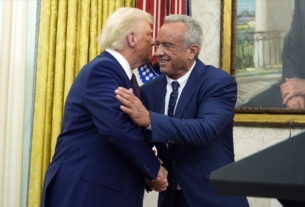Indonesia has appointed a senior military general to lead its state food procurement company, raising concerns about the military’s role in civilian affairs. President Joko Widodo approved the appointment on Monday, saying it was necessary for national food security.
“The military has experience in logistics and crisis management,” a government spokesperson said. Officials argue that the move will strengthen food distribution across the country.
The new head of Bulog, Indonesia’s food procurement agency, is a high-ranking general with no prior experience in agriculture or food management. Critics say this signals increasing military influence in non-defense sectors.
Bulog plays a key role in stabilizing rice prices and maintaining national food stocks. The agency oversees imports, domestic purchases, and distribution to low-income communities.
Indonesia has a history of military involvement in government institutions. The latest appointment has revived debates over civilian control of economic policy.
“Military appointments in civilian sectors set a dangerous precedent,” a political analyst said. Some lawmakers warn that expanding military influence could undermine democratic governance.
Supporters of the appointment argue that military leadership can improve efficiency. They claim that discipline and logistical expertise will help Bulog function better.
Indonesia has faced food supply challenges in recent years. Climate disruptions, import restrictions, and rising global prices have strained national food reserves.
The government says strong leadership is needed to address these issues. Officials believe that military discipline will help prevent corruption and mismanagement in food distribution.
Human rights groups have expressed concerns over the decision. They warn that increasing military control in civilian areas could weaken accountability.
“History shows that military involvement in governance can lead to abuses,” a human rights advocate said. Critics cite past cases where military-run institutions faced corruption scandals.
Indonesia’s constitution limits the role of the military in civilian administration. However, past governments have appointed military figures to key state-run companies.
Bulog was previously led by civilian experts in food policy and economics. The latest appointment represents a shift toward military oversight in economic affairs.
The Indonesian military has played a role in public affairs since the Suharto era. Although reforms reduced its influence, recent appointments suggest a return to old patterns.
Some analysts believe the appointment is politically motivated. They argue that the government is rewarding military loyalty ahead of the next election cycle.
“The military remains a powerful institution in Indonesia,” a political observer said. Presidents have often relied on military support to maintain stability.
Farmers’ groups have raised concerns over how military leadership will affect food policy. They fear that priorities may shift away from supporting local producers.
Indonesia imports significant amounts of rice to maintain food security. Decisions on imports and pricing will now be managed under military leadership.
The appointment could also affect international trade negotiations. Some foreign partners prefer working with civilian-led institutions in economic agreements.
The government insists that Bulog’s role will remain unchanged. Officials say the new leadership will focus on efficiency, not military expansion.
Transparency advocates have called for strict oversight. They urge the government to ensure that food policies remain free from political or military interference.
Indonesia’s parliament has not formally challenged the appointment. However, some lawmakers have requested further explanations from the administration.
Public reaction to the decision remains mixed. Some citizens welcome stronger leadership in food security, while others fear growing military influence.
The long-term impact of this appointment remains uncertain. Future administrations may either continue this trend or return to civilian leadership in state-owned companies.




